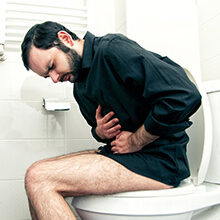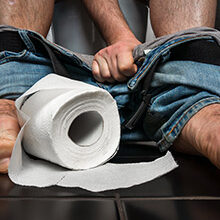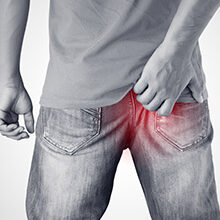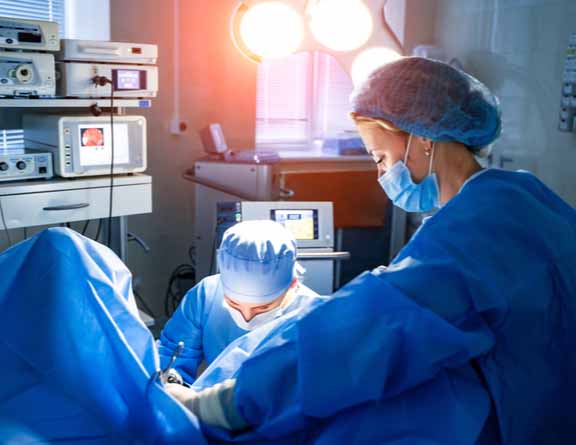A rectal or anal abscess is a pus-filled cavity found in the region of the rectum or anus. The condition is quite painful and usually results from infection of one of the small internal anal glands.
It is more common in men.
The extent and severity of the abscess may vary; but it should be noted that quite commonly, a rectal abscess may be associated with formation of a fistula (in almost 50% cases) and hence needs proper evaluation and treatment

Chronic constipation

Chronic diarrhoea

Lifting heavy weights

Obesity

Straining too much while bowel movement

Excessive Bleeding

Minimal Anal pain

Painful bowel movements

Swelling & Itching

Discomfort while sitting

A rectal or anal abscess is best treated by a Proctologist who has thorough knowledge of the anatomy of the region. Once an abscess is detected it is best to get it surgically drained immediately. Depending upon the size and location of the abscess, local or general anesthesia is used.
At Proctocare Hospital, Laser is used for making an incision. Following this the pus is drained out. Laser is once again used to debride the walls of the abscess cavity. Following the procedure medicines like pain-killers, antibiotics are given.
Depending upon their anatomic location, rectal abscesses are classified into 4 types (this classification is important for the treating doctor and maybe difficult to understand as a patient):
Diagnosis is usually arrived at by a history of your symptoms and clinical evaluation. This includes a digital rectal examination. Occasionally, other tests may be required to find out the extent of the abscess or to screen for the cause that led to it.

Your safety is taken care of by thermal screening, social distancing, sanitized clinics and hospital rooms, sterilized surgical equipment and mandatory PPE kits during surgery.

Our surgeons spend a lot of time with you to diagnose your condition. You are assisted in all pre-surgery medical diagnostics. We offer advanced laser and laparoscopic surgical treatment. Our procedures are USFDA approved.

A dedicated Medical Coordinator assists you throughout the surgery journey from insurance paperwork, to free commute from home to hospital & back and admission-discharge process at the hospital.

We offer free follow-up consultations and instructions including dietary tips as well as exercises to every patient to ensure they have a smooth recovery to their daily routines.
